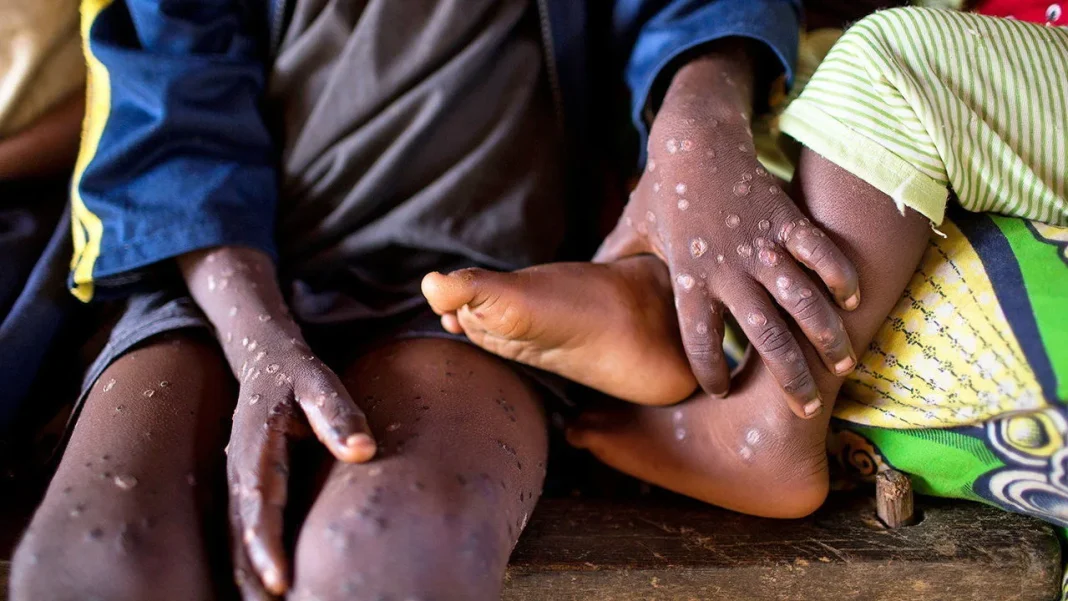Kenya is facing a growing mpox outbreak, with more than 300 confirmed cases and five deaths reported across 22 counties since the first detection in 2024.
Initially confined to border regions, the virus has now spread into Nairobi, Kakamega, Kericho, Machakos, and other counties. Health officials warn that delayed vaccinations, stigma, and overstretched healthcare facilities could allow the outbreak to escalate further.
The current strain, Mpox Clade Ib, is more dangerous than earlier forms. Experts estimate it could cause one death in every 100 infections, particularly among people with underlying conditions or those who fail to seek timely medical attention.
Infected individuals often develop painful skin lesions, fever, fatigue, and swollen lymph nodes. The virus spreads mainly through close contact, including skin-to-skin, sexual contact, and contaminated items such as clothing or bedding. According to the World Health Organization (WHO), community transmission is now the primary driver of the outbreak.
Doctors caution that mpox may be contagious before skin rashes appear, during an incubation period lasting up to 21 days. This makes early detection difficult, as initial symptoms often resemble common flu.
Stigma has also complicated response efforts, with many avoiding treatment for fear of judgment. Misidentification is another challenge, as some communities confuse mpox with scabies due to similar skin rashes. WHO is urging the use of posters, radio campaigns, and community health volunteers to raise awareness and dispel myths.
The organization has also warned against reliance on unverified herbal remedies such as baobab seed water and black seed oil, stressing that only proper medical care can reduce risks.
Kenya’s Ministry of Health has strengthened border surveillance, screening more than 4.7 million travelers at land and air entry points. Authorities advise Kenyans to practice strict hygiene, avoid sharing personal items, use protective gear when caring for patients, and seek immediate medical help if symptoms occur.
Anyone with fever, swollen lymph nodes, or rashes is urged to isolate and report to the nearest health facility promptly.







jh5cf8